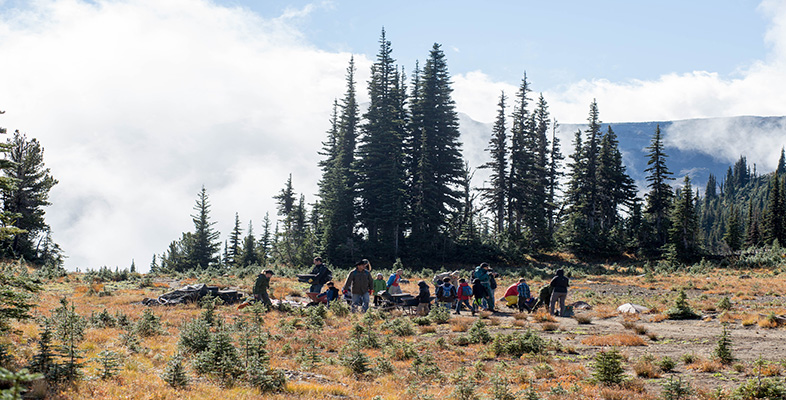1.3 Essential ‘voluntary’ work experience
For entry and progression into many careers, voluntary work experience is essential. Teaching, Law, Environmental/Conservation and Social Work are common examples but there are many others. Positions in the Arts, Media, Publishing, Development and Charitable sectors are rarely advertised and are also difficult to enter without a network of contacts, direct practical experience of the industry and enormous enthusiasm.
For more details on any of these look at the Prospects website, which gives excellent job profiles, and contacts and resources to get you started.
Initial experience in any of these careers is usually unpaid, and so counts as voluntary work. The boundaries between this type of volunteering and others are a bit blurred, because although it is a necessary career strategy it can still benefit the community, especially in the areas of teaching and social work. Even in the Arts and Media, volunteers can build up invaluable work experience in projects such as writing for Charities’ Facebook sites, local radio broadcasts, ‘Street Art’ projects etc.
Activity 1: Think about
Whatever your objectives, look at the comments below to help you assess what you want from voluntary work. A range of volunteers give their reasons for wanting to get involved. Try and think which voluntary activities might meet their needs, then look at the answers to see what they ended up doing. You may identify with some of them, but this should at least demonstrate some of the huge variety of options available.
‘I was bored, with time on my hands while the kids were at school. I just wanted to feel useful, but preferred something helping children. I realised my own were very privileged.’
Answer
Took part in a pioneering CSV project that matches volunteers with families where there are children on the child protection register, working alongside social workers who don’t have time for frequent visits to all homes of children on ‘at risk’ register.
‘I wasn’t happy with what was going on at my son’s school, so I decided to try and make things change.’
Answer
He became a school governor. This was a serious commitment, but he later used the understanding he gained in finance, personnel and strategic planning to apply for a management-level position.
‘I was shocked at an article about the number of young offenders in my town and decided to get involved.’
Answer
She became a mentor with NACRO and worked with two young offenders before and after their release, helping them get training and eventually a job.
‘I believe passionately in human rights and wanted to make things happen.’
Answer
They wanted to make their views known, so apart from helping with publicity campaigns for Amnesty International, they are now writing for an online magazine News Channel. Both of these activities allow them to be really flexible with their commitment, and work odd hours at home. This is vital as they travel for their job a lot.
‘I’ve always been good at sport and my boss suggested I try coaching. He said it would also look good on my CV, but I don’t know how when I’m in a banking job.’
Answer
Mike became a leader and coach with a disability sports group, as well as coaching martial arts at a local youth club. After two years he realised he had experience in teaching and mentoring, and had also developed skills in organising, promotions, managing a budget and team-building. He’d demonstrated commitment, enthusiasm and great communication skills. All of this contributed to a promotion to training manager in his department.
'I knew I wanted to work in environmental conservation, but found out you don’t get anywhere without a background of relevant voluntary work.'
Answer
For Jo, weekend stints as a voluntary warden for the RSPB turned into longer periods at a reserve in Scotland during her summer vacation. She is now applying for a full-time post as a reserve warden with special responsibility for events and promotions. (Note: this is an example of essential work experience, mentioned earlier in Section 1, even though it also counted as voluntary work.)
Finally, two common concerns and an encouraging message ...
‘I didn’t think I was good at anything, and nearly didn’t even bother to apply anywhere.’
Answer
Jess saw an article in the local press about the ‘befriending’ scheme for housebound elderly people. She now realises that she could offer commitment, an interest in people and a friendly but practical approach. She visits two old men and does their shopping and gardening. She is currently looking to get more involved in community work and is visiting schools and local organisations to encourage more volunteers.
‘I’ve just been made redundant and have been advised to try some voluntary work to get me out of the house, and maybe help my job prospects. I’m also hoping it will cheer me up.’
Answer
David had been trying to get a job without success and decided to volunteer with CSV to gain experience. He volunteered for eight months at a residential care home for people with learning disabilities and now has been given a full-time job at the project – case study, CSV website.
Listen to what some OU volunteers say about why they started voluntary work.
